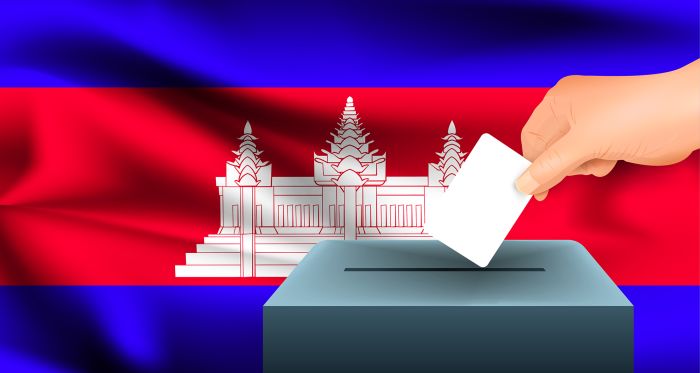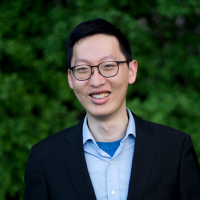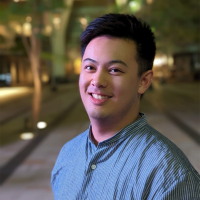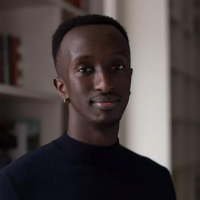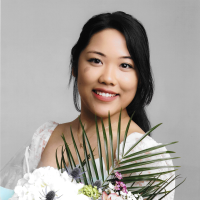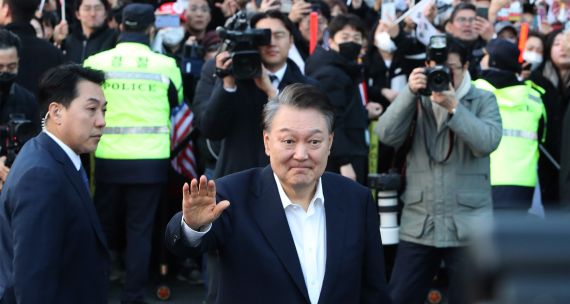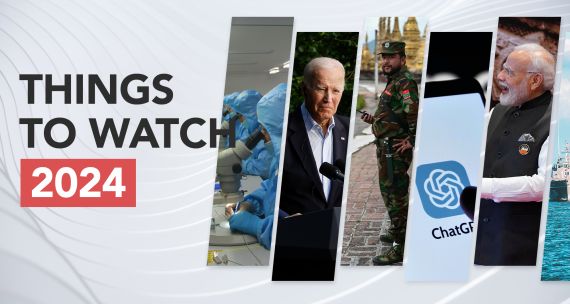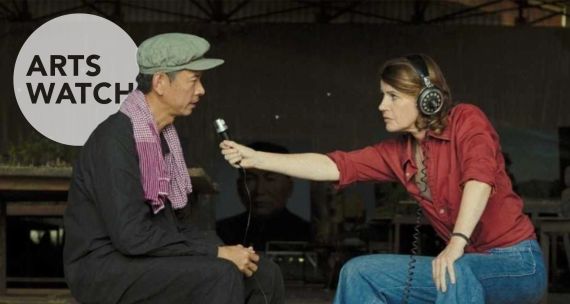On July 23, 8.1 million of Cambodia’s 9.7 million registered voters participated in an election that had a preordained outcome: a seventh term for Prime Minister Hun Sen and his Cambodian People’s Party (CPP). It was an exercise largely devoid of meaningful choice; in May, the government, citing a paperwork technicality, disqualified the Candlelight Party, the only opposition party likely to pose a serious challenge to the CPP. While the election’s official results will not be available for a couple of weeks, it is clear the CPP will retain its near monopoly over the legislature, likely taking 120 of the 125 National Assembly seats. Dr. Lee Morgenbesser, an expert in elections across Southeast Asia, described it as “one of the worst sham votes in living memory” — reflecting an assessment widely held by other international observers.
It wasn’t always this way. Just 10 years ago, the Cambodia National Rescue Party (CNRP) not only won 45 per cent of the vote but also tried to hold the Hun Sen government accountable for suspected electoral fraud. The ruling party learned its lesson; today, any dissent by opposition politicians, activists, or independent media is quickly and decisively snuffed out.
But the election has produced one notable change: on July 26, Hun Sen, who has ruled Cambodia for 38 years, announced that he was stepping down and transferring leadership to his 45-year-old son, Hun Manet.
Unlike his father, Hun Manet’s CV is adorned with Western education credentials; he has a PhD in economics from the University of Bristol in the U.K., a master’s degree from New York University, and a B.A. from West Point Academy, also in the U.S. There are few signs, however, that he will depart from his father’s authoritarian tendencies and steer Cambodia back to the more open and democratic version of its former self.
In its 2022 Indo-Pacific Strategy, Ottawa identified Southeast Asia as a top foreign policy priority for Canada — not only the region’s economies and foreign policies but also the state of its democracies, human rights, rule of law, and peace and security.
Thus, elections and governance in the Hun Manet era should be a matter of concern for Canadians. That includes monitoring the state of Cambodia’s severely distressed democratic institutions and its economic strengths and vulnerabilities.
The many deaths of Cambodia’s political opposition
On paper, Cambodia’s electoral system looks relatively open and democratic. Like Canada, it is a constitutional monarchy, where the king’s role is mainly ceremonial, and he has no real political power. However, Cambodia features a proportional representation system that is also closed-list, meaning that voters choose parties rather than individual candidates, and the party decides which candidates receive seats. The party or coalition of parties with the most seats in the legislature selects a prime minister, who is officially appointed by the king.
But the last time there was any significant electoral challenge to the CPP’s power was in the 2013 general election, when the CPP secured only 66 seats compared to 90 in 2008, as the CNRP won 55 seats in the National Assembly. Created in 2012 as the result of a merger between the former finance minister Sam Rainsy of the Sam Rainsy Party, and Kem Sokha of the Human Rights Party, the CNRP rejected the election results after accusing the CPP of electoral fraud and staged a yearlong boycott of parliament.
Although a settlement was achieved in 2014, when Sam Rainsy became the officially recognized opposition leader, tensions became violent in 2015, with Rainsy eventually expelled from the National Assembly and entering self-imposed exile in France. As the government continued to threaten CNRP members and propose new laws expanding the CPP’s power to dissolve political parties, Rainsy resigned from his post.
Later in 2015, Kem Sokha was arrested for treason, and the CNRP was dissolved by the constitutional court. In March 2023, Sokha was sentenced to 27 years of house arrest.
The Candlelight Party (CLP) emerged as the most viable opposition party to contest the July 23 election. Formerly known as the Sam Rainsy Party before changing its name in 2017, the CLP remained inactive until 2021, eventually claiming to have established headquarters in every Cambodian province at its peak.
In 2022, the CLP won 22 per cent of the votes in the commune elections — likely not enough to pose a major threat to the CPP’s monopoly on power, but enough to invite "politically motivated lawsuits" by the government and attacks against its candidates. In May, Hun Sen’s government disqualified the CLP for filing a photocopy of the party’s registration form rather than the original copy. The CLP said the document in question disappeared during a government raid of its offices in 2017.
Besides the CPP, the only parties ‘allowed’ to compete in Sunday’s election were the National United Front for an Independent, Neutral, Peaceful and Cooperative Cambodia (FUNCINPEC), a party led by Norodom Chakravuth, and 16 other smaller parties.
FUNCINPEC has historically played a role in either power-sharing with or being a junior coalition partner to the CPP, as it has never been able to compete with the CPP’s dominance over political institutions. Despite winning the country’s first elections organized by the United Nations in 1993, the party is considered “co-opted” by Hun Sen to the point of no longer being a true opposition, with former prime minister Prince Norodom Ranariddh himself acknowledging that Hun Sen brings about “national unity.” Notably, FUNCINPEC filed the initial complaint to dissolve the CNRP in 2017. Although the party won all five non-CPP National Assembly seats in the July 2023 election, the royalists face long-standing allegations of corruption, greed, and self-interest.
The other opposition parties stood little chance of securing any seats, as they were dogged by infighting and a lack of coherent messaging. As Joshua Kurlantzick of the Council on Foreign Relations commented, “They [were] there just for show.”
A carefully crafted façade
Although Hun Sen and the CPP have gone to great lengths to eliminate any real challenges to their stranglehold on power, they have also gone to considerable lengths to create a façade of widespread popular support and democratic legitimacy for the party and its policies.
A recent focus of these efforts was restricting electoral candidates and boosting voter turnout. In June, the National Assembly, dominated entirely by the CPP in the last legislative session, approved a legal amendment allowing the government to bar anyone who did not vote on July 23 from running as a candidate in future elections at all levels of government. The law also made it illegal to call for a boycott of the vote, punishable by a fine or even imprisonment. Turnout in the recent election was reported to be around 84 per cent.
Even for “strongmen”-led regimes like the one in Cambodia, maintaining a veneer of democratic legitimacy is important, as it provides some cover for actions that could otherwise ostracize them on the world stage. It also creates a non-threatening pressure-relief valve that allows citizens to feel as though they have a say in their country’s politics, even when, as Professor Lee Morgenbesser explains, elections are reduced to “minor disagreements over policy issues, rather than major disagreements over the political direction of the country.”
Another pillar in this façade is the domination of the media space. In recent years, the CPP has become more sophisticated in its distortion of political truth. In 2017, in preparation for the 2018 election, it ramped up its crackdown on independent media, including the closing of U.S.-funded radio stations such as Radio Free Asia. In February 2023, it shuttered the Voice of Democracy, one of the last remaining independent media outlets.
The ruling party has partially filled this void with the smartphone app Fresh News, a Khmer-language digital news source that bolsters the CPP’s control over framing and setting the news agenda for the public. The platform is also used to conduct smear campaigns against opponents, highlight news coverage favouring the government, and popularize Hun Sen’s campaign against independent media. A recent article published by the outlet before the election emphasized the country’s democratic maturity, praising the CPP’s “unwavering commitment to political pluralism and peaceful democracy.”
But Hun Sen also recently learned that there are limits to this brazenness. On June 30, an independent oversight board for Meta suspended his Facebook account for breaching rules against violence and incitement. The offending content was a video in which Hun Sen called on those who accused the CPP of vote-buying to either bring forth a legal case or face a beating. After Meta announced it was suspending his account, he retaliated by threatening to ban Facebook in the country.
But Hun Sen had to backtrack on that threat, especially given the difficulty he and his party had in gaining similar traction on Telegram or TikTok. As of 2021, about 71 per cent of Cambodians are on social media, the majority of them on Facebook. Interestingly, that platform is also where youth and opposition party supporters can still voice dissent and share subversive content, including uploading political memes and posts criticizing government officials.
The apple doesn’t fall far from the tree
While Hun Manet may thank his father for fostering the illusion of a strong popular mandate to begin his rule, he still might face headwinds on a number of issues, including, for example, managing elite politics, the economy, social tensions, and foreign relations.
Cambodia’s current institutions benefit political elites, and that will not change. Among the biggest beneficiaries are members of the Hun family. According to a 2016 investigative report, the family dominates both the private and public sectors. The hereditary feature of Cambodia’s political system is not limited to the Hun family, however; about two-thirds of the cabinet is expected to change hands, passing to a group of younger officials. Some of those who will inherit powerful roles will do so from their fathers. Navigating the competition among these elites could be tricky, and Hun Manet will need to demonstrate his leadership skills. Moreover, he will need to do so with his father looming prominently in the background. After all, Hun Sen acknowledged his intention to continue as the head of the ruling party in addition to the possibility of returning as prime minister if his son fails to perform well.
More positively, Hun Manet will inherit what the IMF predicts is on track to become Southeast Asia’s fastest-growing economy by 2025, albeit with a fairly low GDP per capita of approximately C$2,500. The country’s recent growth has been primarily fuelled by export-oriented manufacturing, especially ready-made garments. The services and agriculture sectors are becoming more prominent drivers of growth. Alongside this export-led growth, Cambodia also receives financial assistance from multilateral donors. According to the ISEAS-Yusof Ishak Institute, China and Japan were Cambodia's largest and second-largest sources of aid in 2016, sending C$593 million and C$141 million, respectively.
But Cambodia is not immune to global factors hitting other economies, such as inflation, rising interest rates, a drop in investment, and ripple effects from the Russia-Ukraine war. Although Cambodia’s garment exports and service industries remain strong, an economic slowdown in its two largest export markets, the U.S. and the European Union, may impact its manufacturing sector. Moreover, despite a predicted economic growth rate of 5.5 per cent in 2023, Cambodia’s institutions continued to be dominated by a privileged few, with the wealth gap between urban elites and the rural poor continuing to expand.
Hun Manet will also confront thorny social issues related to economic development, especially tensions related to land ownership. The CPP’s distribution as of 2016 of more than two million hectares of Economic Land Concessions (ELCs) to private entities has been a major source of conflict. These long-term leases give recipients the authority to clear land for industrial agriculture, which has adverse impacts on the environment and local communities.
Many entities that acquired ELCs have exploited the lands for activities like hydropower construction, mining, and logging, causing significant deforestation and environmental degradation. Since 2000, an estimated 770,000 people have been forcibly displaced in these disputes. Indigenous communities are especially vulnerable as their social, cultural, and economic ties are deeply intertwined with forest land. The government has taken an unforgiving stance against environmental activists, particularly those from Indigenous communities. Some of these confrontations have had violent and deadly consequences.
One area where there is expected to be virtually no change is in Cambodia’s foreign policy. In preparation for his new role, Hun Manet has become increasingly active in regional diplomacy, meeting with numerous defence officials and foreign ministers. China will continue to be Cambodia’s staunchest ally and its relationships with two immediate neighbours — Vietnam and Thailand — are stable. Given their own authoritarian (in the case of Vietnam) or military-monarchical rule (in the case of Thailand), neither is likely to complain about Cambodia’s increasingly undemocratic nature.
Although the early years of a Hun Manet-ruled Cambodia will not be entirely predictable or without speedbumps, there will also likely be little change in the CPP’s hold on power. Given Hun Sen’s continued involvement with the party, there is no guarantee Hun Manet’s qualifications will make him any more progressive or different from his predecessor.
Canada, with its increased focus on the region through its Indo-Pacific Strategy, should be watching closely to see how democracy and stability fare under this new leader. After all, like father, like son.
The authors would like to thank Dr. Lee Morgenbesser (School of Government and International Relations, University of Griffith), a guest speaker for The Initiative, and Lalia Katchelewa (McGill University), whose comments informed the development of this work.
